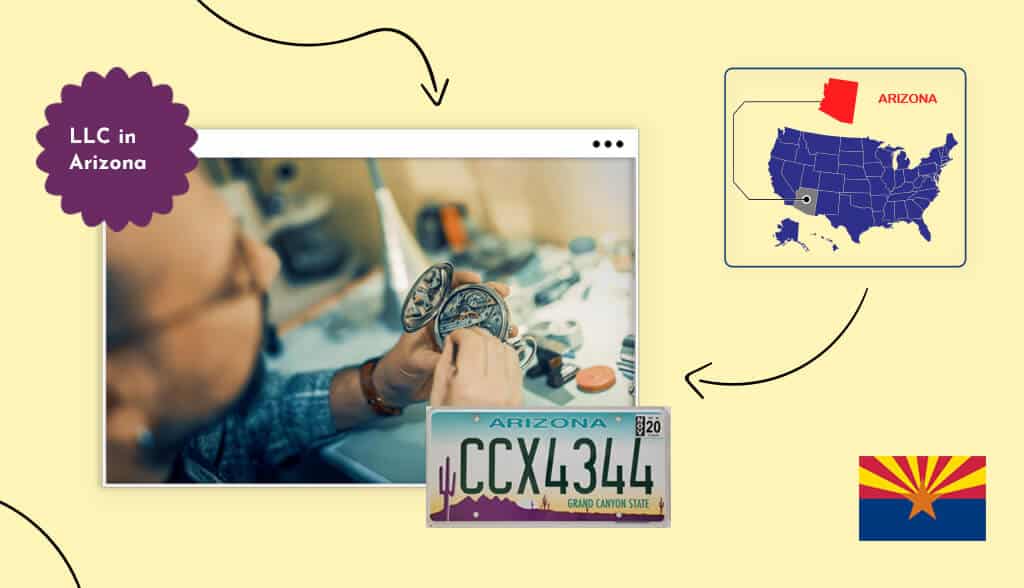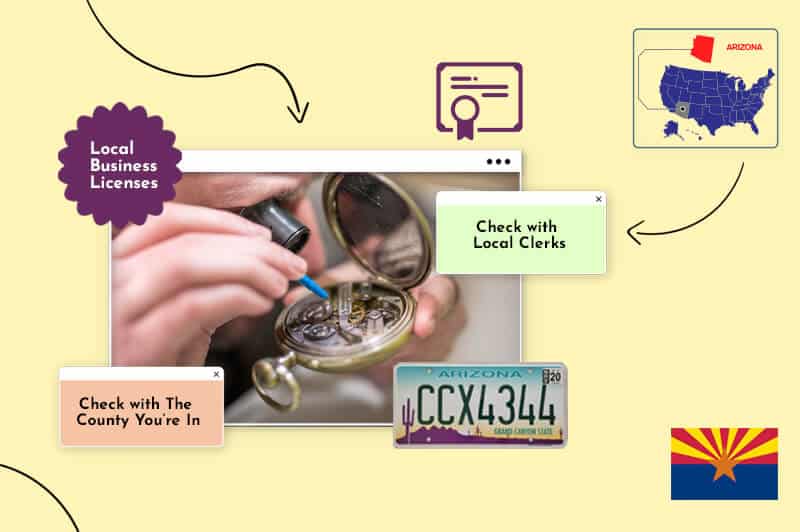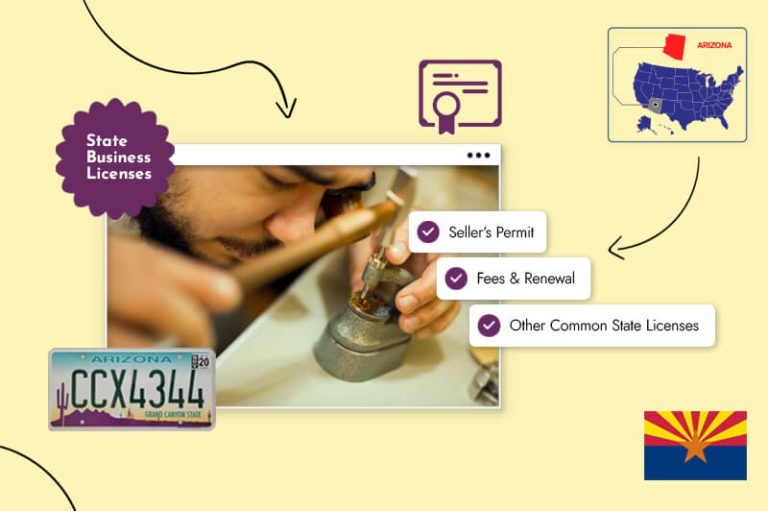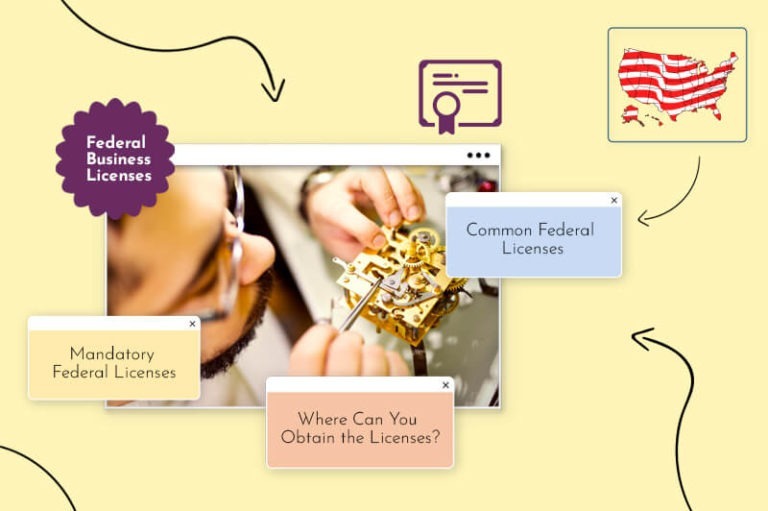
Many states require a small business owner to obtain a general business license to legally operate a business within the state. Fortunately for Arizona small business owners, the state of Arizona does not require a general business license. The state does, however, require other licenses and permits for specific types of businesses and/or for certain activities related to your business. For example, individual localities may require a general business license. You may also need a permit or license for tax purposes, zoning clearance, or selling certain products or services within the state of Arizona.
Obtaining the correct licenses and permits for your small business in Arizona, however, can be more complicated. You need to know what licenses and permits you need—whether they are local, state, or federal requirements—and how to apply for them.
To ensure your Arizona business is properly licensed and permitted, we will go over some commonly required licenses and permits and explain how to apply for them.
Licenses and permits may be required by local, state, or federal government agencies. Although the two terms are often used together, licenses and permits are not equivalent.
A license gives you or your business permission to do something, use something, or sell something. Obtaining a license often involves a test and/or proof of relevant credentials, but not always. To drive a vehicle on a public roadway, you must take a test to obtain a driver’s license; meanwhile, a doctor must also take a test and provide proof of having the required education to obtain a license to practice medicine. Selling certain products (such as tobacco or firearms) also requires licensure.
Think of a permit as a specialized and specific type of license. Permits typically focus on safety regulations and concerns and, when issued, give you permission to do something. Permits do not require tests but may require inspection. A local fire department, for example, may give you a permit to occupy a commercial space after conducting an inspection for fire hazards, while the county government might issue your business a permit that allows you to have live music and food for your grand opening.
The state of Arizona does not issue business licenses, meaning you do not need to worry about applying for a business license at the state level. Individual towns, cities, or counties, however, may require a general business license or require certain types of businesses to be licensed. The Arizona Commerce Authority is a good place to start if you are trying to determine whether a local business license is required for your business. You will also likely need various tax licenses issued by the state and/or federal government.
State, county, and local governments tend to regulate more detailed business activities than the federal government. This means you may need to obtain a variety of permits that are location specific. Examples of permits your business may require include:
It is also important to be aware of any requirements which may face home-based businesses. Licensing and permitting may also apply to a business that you intend to operate from your home. You can learn more about these requirements from the State of Michigan website.
Unfortunately, there is no “one-stop shopping” option for obtaining licenses and permits for your Arizona business. Where and how you apply will depend on the type of license or permit needed. Most permits and licenses, however, can be applied for online. The Arizona Department of Revenue website and the state of Arizona government website are valuable resources when determining what licenses and permits your business needs and how to apply for them.
Operating a business without first obtaining and/or continuing to maintain the required licenses and permits can subject your business to hefty fines, costly litigation, criminal violations, and even immediate closure by local, state, or federal authorities. In short, the time and effort spent ensuring your Arizona business is properly licensed and permitted are well worth it.

Figuring out what type of local or county-issued license(s) you need to operate your business can be challenging, given that it varies depending on what type of business is involved and where you plan to operate your business.
One way to ascertain what local licenses your business needs is to contact the local clerk’s office. Often, the clerk’s office is responsible for reviewing and approving or denying these licenses. A searchable database of Arizona city and town governments can be found on the League of Arizona City and Towns website. The Arizona Commerce Authority also offers a list of local government offices with contact information.
You may also need to apply for licenses and/or permits issued at the county level. To find out what licenses and permits you may need and how to apply for them, check with the appropriate county clerk or county government office. The Arizona Association of Counties website provides a directory for all Arizona county governments.
Examples of common local licenses or permits include:

Although you do not need to worry about a general business license when operating a business in Arizona, the state will likely require your business to obtain other licenses.
If your business is selling a product or engaging in a service subject to the Arizona Transaction Privilege Tax (TPT), a license from the Arizona Department of Revenue (ADOR) would likely be needed as well as a transaction privilege tax or business/occupational license from each city in which the business is based or operates.
You can apply for an Arizona vendor/sales tax license online through the Arizona Department of Revenue website. To use the online option, you will need to create an account with the Department of Revenue (a good idea in general). You can also download the Joint Tax Application and mail it to the address indicated on the form, or you can submit the application in person at the Phoenix, Mesa, or Tucson offices.
The initial cost and renewal fees for the licenses and permits your business will need can vary widely depending on the type of business and geographical location. For example, a billboard permit application in Maricopa County runs $250, while a development master plan permit application can easily cost over $50,000. The initial application fee for your Arizona vendor/sales tax license, however, will cost you $500.
Depending on the products or services your business sells, your business may be required to obtain—and keep current—other state licenses. The Arizona Department of Revenue offers a License Compliance Program to help ensure businesses are properly licensed.

If your business is engaged in selling products or services regulated by the federal government, you will need to apply for the appropriate license.
For a complete list of business activities regulated by the federal government, along with contact information for the relevant federal agency, navigate to the U.S. Small Business Administration (SBA) website.
The most common reasons a business needs a federal business license include businesses that engage in any of the following:
What you will need to apply for a business license or permit will depend on the type of license/permit and the agency responsible for issuing the license/permit. Generally, however, be prepared with the following information when applying for a license or permit:
After investing your time and money in getting your business up and running, probably the last thing you might want is a hefty fine or mandatory closure because you failed to get the necessary licenses and permits. Take the time now to research the appropriate local, state, and federal agencies and resources to be sure you know what licenses and permits you need, and get your applications submitted to ensure your business is in compliance with all local, state, and federal laws and requirements.
This portion of our website is for informational purposes only. Tailor Brands is not a law firm, and none of the information on this website constitutes or is intended to convey legal advice. All statements, opinions, recommendations, and conclusions are solely the expression of the author and provided on an as-is basis. Accordingly, Tailor Brands is not responsible for the information and/or its accuracy or completeness. It also does not indicate any affiliation between Tailor Brands and any other brands, services or logos.
Products
Resources
@2024 Copyright Tailor Brands